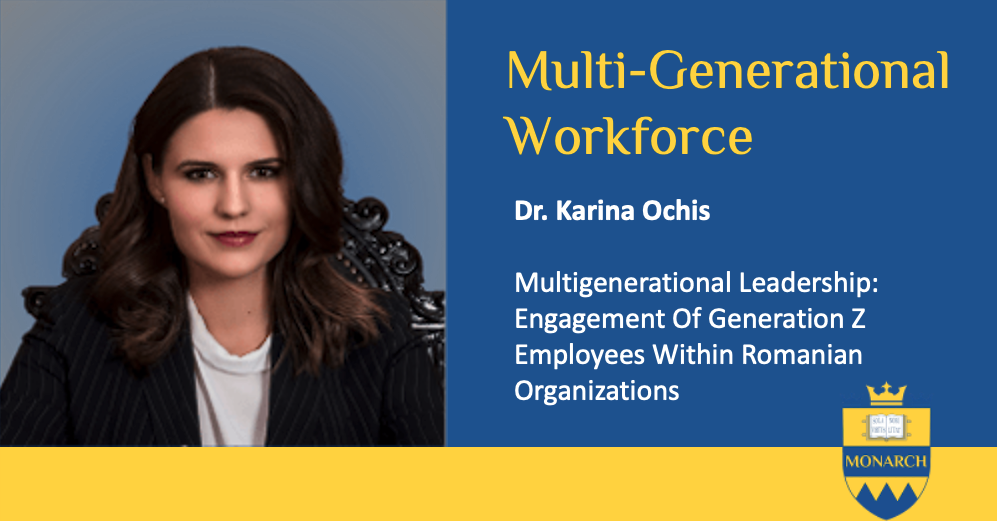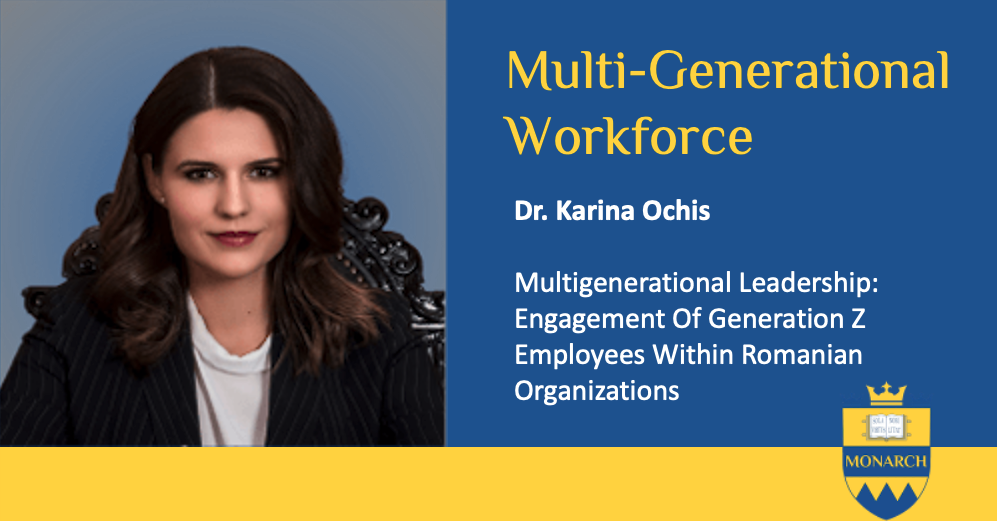Multigenerational Leadership: Engagement Of Generation Z Employees
Keywords:
Leadership, Multigenerational Logoleadership, Employee Engagement, Generation Z, Organizational Conflict, Employee Integration, PowerAbstract
Employee disengagement is a source of trouble for world-wide businesses with 85% of global employees being actively disengaged at work equating to financial consequences of approximately $7 trillion in lost productivity (Sheep, 2006; Harter, 2017). Young employee stigmatization correlated with the lack of research on Generation Z, the youngest generational group of employees penetrating the workforce, results in high organizational turnover, younger employees lacking mentorship and further disengagement (Myers & Sadaghiani, 2010; Marston, 2007; DeLong, 2004).
The present executive summary abridges the research findings of the doctoral research submitted to Monarch Business School Switzerland on Multigenerational Leadership: Engagement Of Generation Z Employees Within Romanian Organizations. The introduction presented the background of the problem. In the Literature review, influential authors in the domains of power and conflict resolution, generational theories, theories of leadership and theories of employee engagement have been reviewed and critiqued. The methodology and data presentation exhibited the research method, design and data collected during the field work component. The theoretical and applied contribution to the domain were revealed in the synthesis and integration. The conclusion indicated recommendations for implementation and identified areas for future investigation.
The research focused on the nexus within the academic literature with respect to the multigenerational work environment, generational leadership and engagement, Generation Z, power theories and dynamics, the nature of power-based workplace conflict and resolution. The second aim of the research was to investigate the work-related values as well as the leadership preferences of Generation Z employees. The final aim of the research was to develop a model of Multigenerational Leadership that describes the relationship of engagement within multigenerational organizations towards Generation Z employees from a power perspective, introduced as the Ochis Multigenerational Leadership Model.
The research was believed to be the first to extract data from the four generational groups constituting the workforce namely Generations X, Y, Z and Boomer and to compare perceptions from Generation Z employees and managers belonging to the older generational groups, uniquely incorporating the micro, meso and macro levels of analysis in the engagement discourse. The research disputed existing literature according to which intergenerational conflict is the result of differences between generational groups and described the power generated conflict between the multigenerational workforces.






